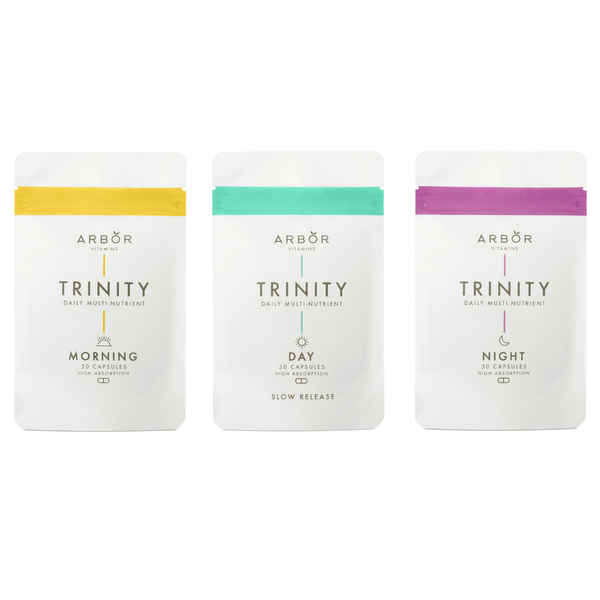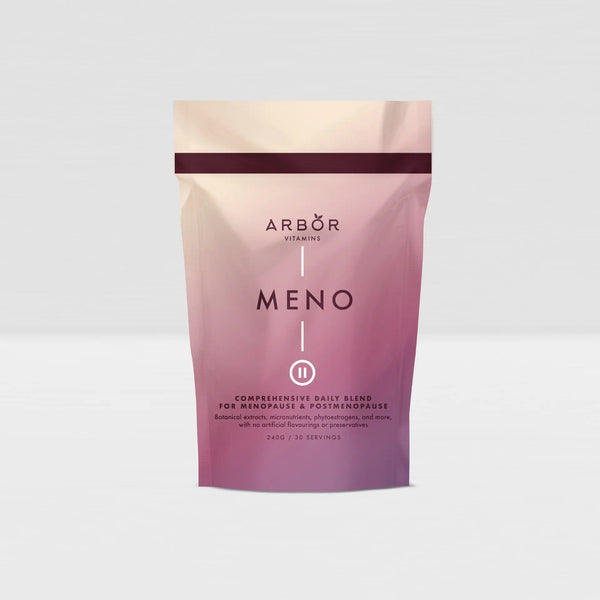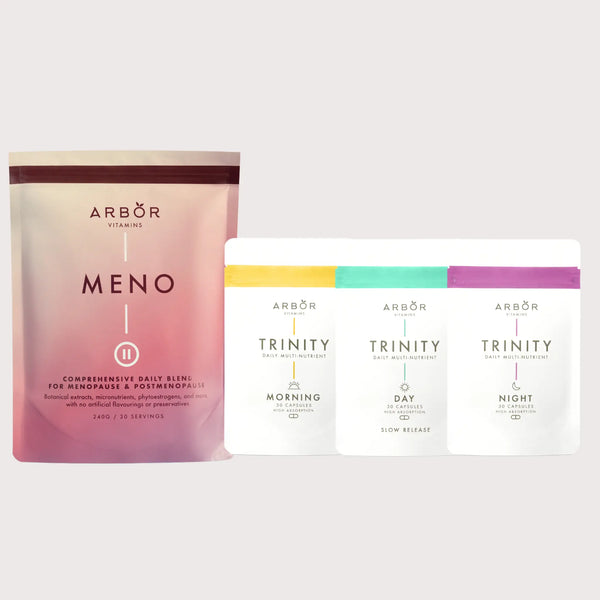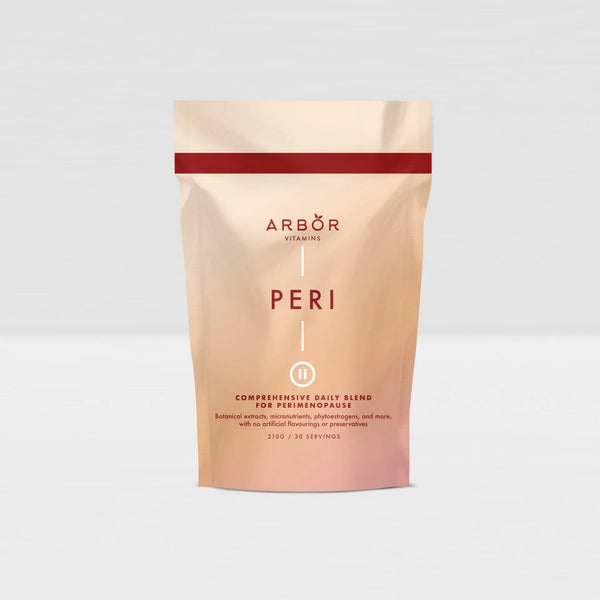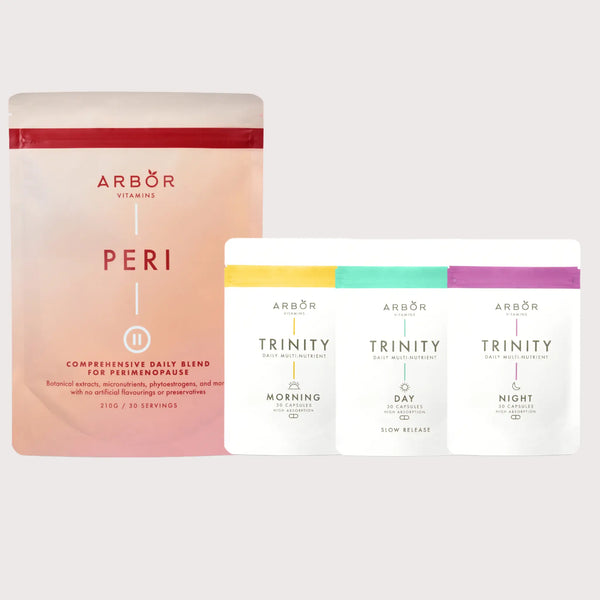Zinc is a humble yet vital mineral to your body. Knowing what are the symptoms of deficiency can help you understand its importance.
While zinc may not receive as much attention as other minerals, it plays a crucial role in numerous body processes. Low zinc levels can often be overlooked. That's why Arbor Vitamins is here to assist you in understanding the symptoms of zinc deficiency. Additionally, knowing which foods are high in zinc can be beneficial.
How Do You Know If You Are Low in Zinc?
Learning what are the symptoms of zinc deficiency is essential to know if you are low in zinc. Zinc insufficiency is less well-known than other dietary deficiencies and can have serious health effects.
Having the right information makes it easier to identify zinc deficiency, as its symptoms can overlap with those of other medical conditions. However, there are several warning signs to watch out for, each providing valuable insights into your body's zinc levels.
Buy Trinity Night Formula here.
What Foods are High in Zinc?
You must start getting around the zinc-rich foods. Refill your pantry with the following natural food sources to enjoy the benefits of this amazing mineral.
Shellfish
If you love seafood, you're lucky!
Shellfish are among the best dietary sources of zinc. Oysters are the richest food source of zinc. Just a few of these provide far more than the daily required intake. Additional shellfish that are all delectable complements to any seafood meal and rich in zinc are:
- Mussels
- Crab
- Lobster
Meat and Poultry
These dietary staples are essential parts of a zinc-rich diet because they are reliable sources of bioavailable zinc. Zinc is present in significant levels in:
- Lamb
- Mutton
- Beef
- Turkey
- Chicken
Seeds and Nuts
Seeds and nuts provide a nutrient-dense option for plant-based diets or for those wishing to vary their zinc sources. Particularly noteworthy are the high levels of zinc found in:
- Pumpkin seeds
- Sesame seeds
- Hemp seeds
- Pine nuts
Legumes
Legumes contain protein, fibre, vitamins, and minerals, including zinc. These include:
- Beans
- Lentils
- Chickpeas
Dairy Products
Dairy products are a great way to get zinc and other vital minerals like vitamin D and calcium. They contribute to your daily zinc requirements. They also help to maintain your overall health. Add the following to your diet:
- Milk
- Yoghurt
- Cheese
To reduce saturated fat consumption and support heart health, choosing low-fat or non-fat variations is essential.
What are the Symptoms of Zinc Deficiency?
The following are the symptoms of zinc deficiency.
Reduced Immune Function
Strengthening your immune system is one of zinc's primary functions. Therefore, chronic illnesses or frequent infections may signal a mineral deficiency. A lack of zinc weakens the body's defences against diseases, leaving you vulnerable to anything from minor colds to more severe illnesses.
Slow Wound Healing
Zinc is fundamental for the development and fixing of new cells. Thus, ongoing injuries that take a long time to heal or show symptoms might demonstrate lacking zinc levels in the body. This slow healing process underscores the significance of sufficient zinc for the ideal tissue recovery and repair.
Hair Loss
Although a few hair strands falling out daily are natural, excessive or thinning hair may indicate a zinc deficit. Zinc is necessary for hair follicles to remain healthy and develop. Low amounts can cause hair to become dull, brittle, and prone to breaking, resulting in visible hair loss over time.
Appetite Loss
Zinc is essential for regulating taste perception and appetite. Therefore, a deficiency in this mineral can lead to a decrease in appetite and taste sensitivity, which, if left untreated, may result in weight loss or poor health. If you're experiencing puzzling changes in your appetite or a reduced sense of taste, you may be lacking zinc.
Compromised Skin Health
Your skin acts as a barrier against infections and environmental factors. Zinc supports healthy skin by promoting collagen synthesis, regulating sebum production, and facilitating tissue healing. Consequently, a deficiency in zinc can lead to persistent skin conditions such as dryness, acne, or eczema.
Buy our Three TRINITY formulas here.
Concluding Thoughts
A zinc deficiency might be silently affecting your health beneath the surface. By learning about the symptoms of zinc deficiency and incorporating zinc-rich foods into your diet (plus our TRINITY Night formula!), you can take proactive steps to protect yourself.
Indulging in flavorful meats, delicious seafood, or nutrient-packed plant-based meals are just a few enjoyable ways to prioritise zinc and nourish your body from within.


